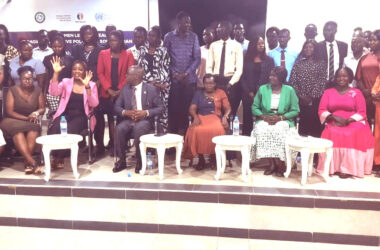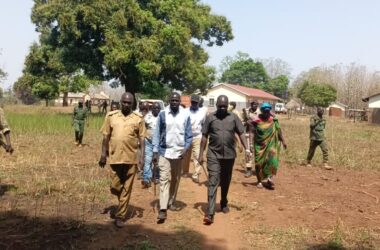By Ephraim Modi Duku Sokiri
The Ministry of Gender, Child and Social Welfare yesterday handed over the Women Empowerment Bill to the Ministry of Justice and Constitutional Affairs.
Speaking to the press, the acting Undersecretary at the Ministry of Gender, Child and Social Welfare Regina Ossa Lullo acknowledged handover of the bill to the Ministry of Justice and Constitutional Affairs for further action.
“Today, we brought the affirmative action bill call Women Empowerment Bill to the Ministry of Justice and Constitutional Affairs, so that they may work on it in the manner that suits legal workings,” she said.
As a process, she said they started the bill with review meetings with various participants since 2011 and finalized it earlier this year.
“The bill was first started in 2011, we went through consultative meetings with all the stakeholders and the last one was this year in February. So, we feel now that enough consultation has been done so we have to bring it to the justice ministry,” said Regina.
Since the process requires facilitation and others, Regina added that they have been supported by several agencies in pondering out proceedings.
On the other part, the Undersecretary at the Ministry of Justice and Constitutional Affairs, Dr. Gabriel Isaac Awow also acknowledged receipt of the bill.
“The Ministry of Justice is delighted to receive a very important bill, to our women and for the people of South Sudan from the Ministry of Gender, Child and Social Welfare,” he said.
“The bill is one of the important bills because also we legalize the rights of our women.”
Dr. Gabriel also affirmed that the ministry is committed to conclude the progression of the bill enactment by the parliament as soon as possible.
“As a technical institution, we will be working on it to make sure that we comply with the all laws in the constitution then the Minister of Justice will table it in the parliament,” said Dr. Gabriel.
Women in South Sudan face extraordinary challenges. Opportunities for education and vocational training are scarce. Laws and patriarchal norms limit women’s ability to inherit land, start a business, and lead in public affairs.
They as well demonstrate extraordinary resilience. Survivor networks and referral services empower women to support each other in seeking safety and recovery from gender-based violence (GBV).
In business, village savings and loan associations have allowed women to start profitable enterprises that make it possible to feed their families and send their children to school. And with the historic mediating role of chiefs and elders having been disrupted by inter-generational contests for influence, women’s groups play a vital role in forging peace in and across communities by dissuading their sons from violent acts.
Gender equality is not only a fundamental human right, but a necessary foundation for a peaceful, prosperous and sustainable world. There has been progress over the last decades, but the world is not on track to achieve gender equality by 2030.
The social and economic fallout from the COVID-19 pandemic has made the situation even bleaker. Progress in many areas, including time spent on unpaid care and domestic work, decision-making regarding sexual and reproductive health, and gender-responsive budgeting, is falling behind.
Women’s health services, already poorly funded, have faced major disruptions. Violence against women remains endemic. And despite women’s leadership in responding to COVID-19, they still trail men in securing the decision-making positions they deserve.
Commitment and bold action are needed to accelerate progress, including through the promotion of laws, policies, budgets and institutions that advance gender equality. Greater investment in gender statistics is vital, since less than half of the data required to monitor Goal 5 are currently available.




